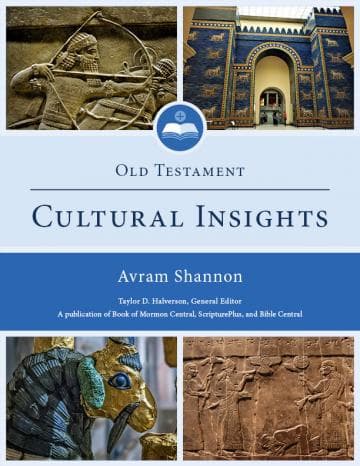Book
71 Chapters

Circumcision is the removal of the foreskin from the penis. In the Old Testament, it is the distinctive mark of the Abrahamic covenant (Genesis 17:9–14). The ancient Israelites were not the only ancient people to circumcise—we have evidence for circumcision among the Egyptians, the Phoenicians, and others. It is distinctive in the Bible, however, as a sign of Israel’s covenant with God. Genesis 17 describes circumcision as an “everlasting covenant” (Genesis 17:14). In order to take part in the annual Passover meal (the symbol of membership in the Israelite covenant community), males needed to be circumcised. According to the commandments in Leviticus, circumcision happened the eighth day after birth (Leviticus 12:3).
The requirement for males to be circumcised in order to be part of God’s covenant people continued throughout the Old Testament. When Shechem wished to marry Jacob’s daughter Dinah, Dinah’s brothers insisted that every male in the city of Shechem be circumcised (Genesis 34:14–17). Moses found himself in danger of receiving the Lord’s wrath because he had not circumcised his son, and he needed to be rescued by Zipporah, his wife (Exodus 4:24–26). After the Exodus from Egypt, the ancient Israelites apparently did not circumcise during their time in the desert, and so they needed to be circumcised as part of their entry into the promised land (Joshua 5:2–8).
Because of circumcision’s covenant significance, the Old Testament authors often used circumcision as a metaphor for Israel’s covenant commitment. Deuteronomy 10:16 commands Israelites to circumcise their hearts. This is reiterated in Deuteronomy 30:6, coupled with a version of the great commandment to love God with all one’s heart. Similarly, Leviticus 26:41 describes those who have not kept their covenants as having “uncircumcised hearts.” This imagery is continued in the prophetic book of Jeremiah (see Jeremiah 4:4).
Although circumcision is described in Genesis as everlasting, during New Testament times the Apostles received revelation that circumcision was not a necessary part of following Jesus, meaning that one did not need to first become Jewish in order to become Christian. This has continued into the modern Church of Jesus Christ.
Genesis 17:9–14
Genesis 34:1–17
Exodus 4:24–26
Exodus 12:44
Leviticus 12:3
Leviticus 26:41
Deuteronomy 10:16
Deuteronomy 30:6
Joshua 5:2–8
Jeremiah 4:4
Jeremiah 9:25–26
Ezekiel 44:9
Book
71 Chapters
Items in the BMC Archive are made publicly available for non-commercial, private use. Inclusion within the BMC Archive does not imply endorsement. Items do not represent the official views of The Church of Jesus Christ of Latter-day Saints or of Book of Mormon Central.